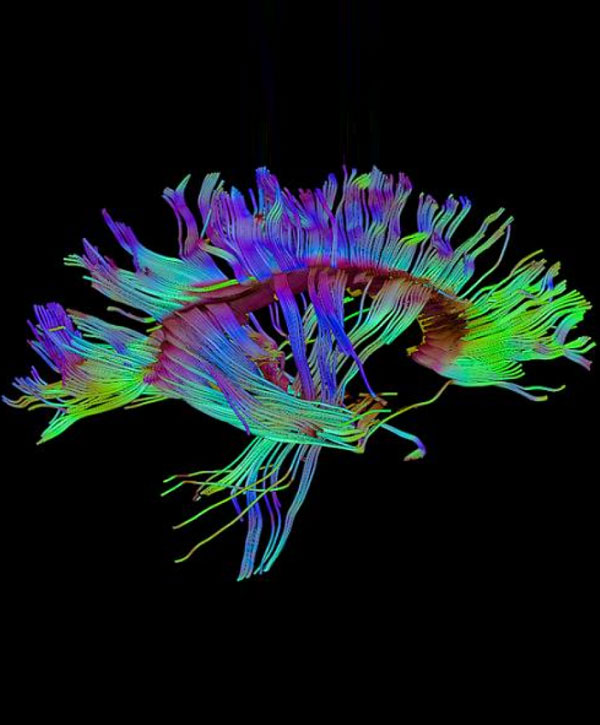Disease Education Information
Treatments Can Help Provide Better Outcomes
Growth hormone deficiency (GHD) is a growth disease associated with inadequate secretion of growth hormone (GH) from the pituitary gland, the "master gland" in the brain.1
- What is Growth Hormone Deficiency?
Growth hormone deficiency is a rare disease that can be caused by genetic mutations or acquired after birth.1 Because the patient's pituitary gland secretes inadequate levels of somatropin, the hormone that causes growth, his or her height will be affected and puberty delayed.2 Without treatment, the child will have persistent growth failure, a very short height in adulthood, and may experience other health problems.1
- Who gets Growth Hormone Deficiency?
Growth hormone deficiency affects one in approximately 4,000 to 10,000 people.3 It can be congenital (eg, if caused by genetic mutation), or acquired after birth, due to trauma, brain tumor, surgery, or radiation therapy.1 It can also be idiopathic, in which case its cause is unknown.1 In some cases, it can result when patients also have other hormone deficiencies, including the hormones that activate the thyroid and adrenal glands.4
- What are the Symptoms of Growth Hormone Deficiency?
The symptoms include:1
- Overall growth delay
- Short stature
- Maturation delay
- Headache
- Fluid retention
- Muscle and joint aches
- Slippage of the hip bone
The condition results in a delay in the lengthening of the long bones of the extremities, resulting in abnormal growth for the child's age.1
- How is Growth Hormone Deficiency Diagnosed?
Accurate measurements of length (taken from birth to when the patient is two years old) or standing height (from age two onward) should be performed and plotted on the appropriate growth chart. The rate of growth should also be closely monitored, and the child's growth pattern compared with established normal patterns, for children of the same age and gender, to identify any growth lag.5
If a growth delay is identified, a blood test should be done to measure levels of insulin-like growth factor-I (IGF-I), whose levels depend on growth hormone levels.1 Assessment of bone age, by x-raying the patient's left hand, should also be performed.1
Growth hormone stimulation testing may be required. This includes the measurement of growth hormone before and after the administration of certain medicines known to stimulate growth hormone.1
- Can Growth Hormone Deficiency be Treated?
Treatment involves daily injections of growth hormone for several years.1 During this time, the child must be seen regularly by the doctor to ensure that treatment is working and the dosage is correct. Older children can learn to give themselves the shot.
The earlier the condition is treated, the better the child's chances of growing to near-normal adult height. Typically, patients grow by four inches or more during their first year of treatment and three or more inches over the next two years. Growth then continues but at a slower rate.
If the condition is not treated, it may lead to delayed puberty and permanent short stature, as well as other metabolic conditions.1
Growth Hormone Deficiency Resources

Area of Focus: Rare Disease
Growth Hormone Deficiency is a focus of our Rare Disease Therapeutic Area.
Visit Our Rare Disease Site DetailsClinical Trials
We proudly partner with thousands of study sites and tens of thousands of trial participants around the world. It's these clinical trials that lead to life-changing medicines.
Go to Pfizer Clinical Trials Site DetailsReferences
1. National Organization for Rare Disorders. Growth Hormone Deficiency. https://rarediseases.org/rare-diseases/growth-hormone-deficiency/. Accessed February 10, 2020.
2. Reh CS, Geffner M. Somatotropin in the Treatment of Growth Hormone Deficiency and Turner Syndrome in Pediatric Patients: A Review. Clin Pharmacol. 2010;2:111-122.
3. Stanley T. Diagnosis of Growth Hormone Deficiency in Childhood. Curr Opin Endocrinol Diabetes Obes. 2013;19(1):47-52.
4. Filipsson H, Johannsson G. GH Replacement in Adults: Interactions with Other Pituitary Hormone Deficiencies and Replacement Therapies. Eur J Endocrinol. 2009;161:S85-S95.
5. Ergun-Longmire B, Wajnrajch MP. Growth and Growth Disorders. [Updated 2018 Jul 14]. In: Feingold KR, Anawalt B, Boyce A, et al., editors. Endotext [Internet]. South Dartmouth (MA): MDText.com, Inc.; 2000-. Available from: https://www.ncbi.nlm.nih.gov/books/NBK279142/.

